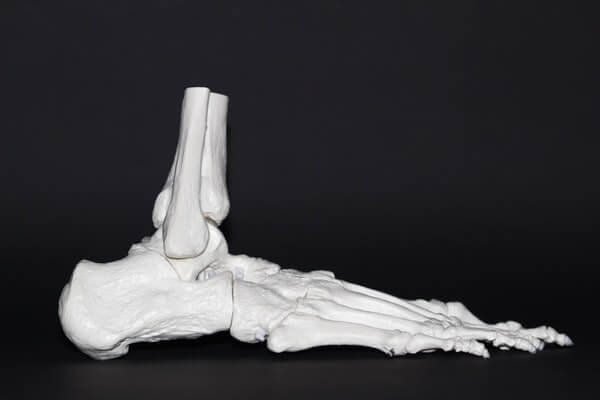When teenagers are juggling the hustle and bustle of high school life and are gearing up for life after graduation, the last thing they’re worried about is their feet. However, there are some common foot problems that teenagers should be aware of that could affect everything from their athletics to their grades. Keep reading to learn more about these issues and how to address them.
Table of Contents
Flat Feet
One common foot problem that teenagers can face is flat feet. Having flat feet can cause discomfort and pain in the feet, ankles, and knees. Flat feet can also lead to other foot problems, such as heel pain, arch pain, and ankle sprains.
One of the most common causes of flat feet is a condition called tarsal coalition. A tarsal coalition is a problem in which two or more of the bones in the foot fuse together. This problem can prevent the foot from flattening properly when you walk, which can cause pain and discomfort.
Flat feet can also be caused by damage to the ligaments in the foot. This damage can occur as a result of an injury, such as a sprain, or from a medical condition, such as cerebral palsy.
If your teenager has flat feet, their doctor may recommend that they wear orthotics. Orthotics are devices that fit inside their shoes and help to support their feet. These flat foot insoles can help improve the way your teenager walks and can help reduce pain and discomfort.
Athlete’s Foot
Athlete’s foot is another common foot problem for teenagers. It’s a fungal infection that affects the skin on the feet. The fungus that causes athlete’s foot thrives in warm, moist environments, so it’s often more common in the summertime or if your teen is involved with school sports. The symptoms of athlete’s foot include itching, burning, and redness on the skin of the feet. The infection can also cause blisters and cracking on the skin. If left untreated, athlete’s foot can spread to other parts of the body.
To treat athlete’s foot, the main priority is to keep the feet dry and clean. The feet should be washed daily with soap and water, and dried thoroughly. It’s also helpful to wear shoes and socks that allow the feet to breathe. If the infection is mild, over-the-counter antifungal medications can be used to treat it. If the infection is more severe, prescription antifungal medications may be necessary.

Ingrown Toenails
Ingrown toenails are also a common foot problem for teenagers. They can be caused by several things, including wearing shoes that are too tight, cutting your toenails too short, and having high arches. Ingrown toenails can cause a lot of pain, and can sometimes lead to infection.
If your teenager has an ingrown toenail, the best thing to do is see a doctor. They can help you treat the ingrown toenail and prevent it from getting worse. There are a few things you can do at home to help relieve the pain, including soaking your teenager’s foot in warm water, applying a topical cream or ointment, and taking over-the-counter pain relievers.
If your teenager has an ingrown toenail, make sure you take care of it properly. Otherwise, it can become infected and require antibiotics or even surgery to fix.
The Importance of Treating Foot Problems for Teens
Now that you’re more familiar with these common foot problems, you may be wondering why it’s so important to treat them properly. Foot problems can cause an incredible amount of pain in teens if left untreated. This pain can lead to permanent damage and even affect your teen’s grades by distracting them during classes. In addition, it can leave them unable to compete in school sports. So, if you want your teen to have a successful, enjoyable high school experience, succeed in sports, and have a chance at getting that national honors society scholarship, treat their foot problems properly.
Keeping Teenagers’ Feet Healthy
These various foot problems can affect the way your teenager walks and how their body functions overall. In addition, foot problems can be painful and lead to other health problems if not treated. So, if you want your teenager to feel comfortable and confident, make sure you’re taking steps to prevent some of these problems and treat them properly if they do occur.





